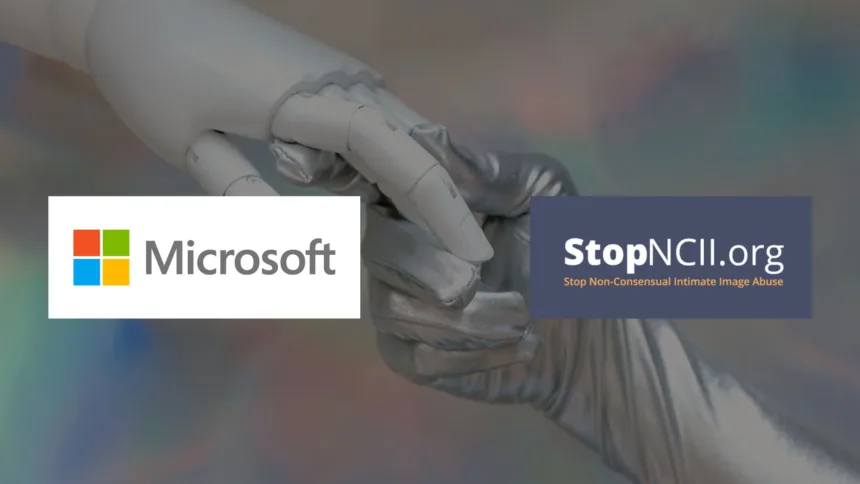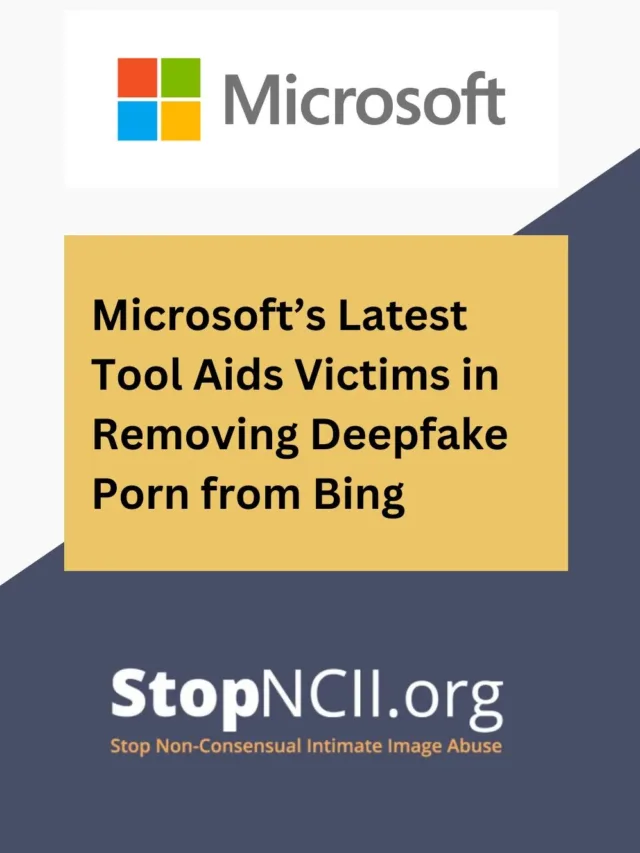Hey, AI community, Microsoft’s newest tool is here to support victims of deepfake and revenge porn by erasing damaging images from Bing search. Discover how this is setting new standards for digital privacy.
Some people might already know about deepfakes, but for those who don’t, here’s a quick explanation. Deepfakes use artificial intelligence to create fake videos or images, where someone’s face or voice is changed to make it look like they said or did something they never did. It’s like a digital trick that can seem very real.
Understanding the Issue
The rise of generative AI has led to an increase in the creation of deepfake porn, where synthetic images and videos are made to look like real people. These images can cause severe emotional distress and privacy violations for the victims. Traditional methods of reporting and removing such content have often been slow and ineffective.
Microsoft’s Partnership with StopNCII
To address this issue, Microsoft has partnered with StopNCII (Stop Non-Consensual Intimate Images), an organization dedicated to helping victims of revenge porn. StopNCII allows victims to create a digital fingerprint, or “hash,” of their explicit images. This hash is then used to identify and remove the images from various platforms, including Bing.
How the Tool Works
When a victim opens a case with StopNCII, a hash of the intimate image is created without the need to upload the actual file. This hash is shared with participating tech companies, which then use it to detect and remove matching images from their platforms. This process ensures that the victim’s privacy is maintained while effectively removing the harmful content.
Impact and Future Steps
Since piloting this tool, Microsoft has acted on over 268,000 explicit images, preventing them from appearing in Bing’s image search results. This initiative is part of a broader effort to protect individuals from the harms of non-consensual image sharing. Other tech giants like Facebook, Instagram, TikTok, and Reddit have also joined this effort, although Google remains notably absent.
Some Recent Deepfake Cases
The Rise of Deepfake Pornography in South Korea (January – July 2024)
South Korea is currently grappling with a significant increase in deepfake pornography cases. In the first seven months of 2024 alone, there have been 297 reported incidents, a sharp rise from 180 cases last year. This surge has led to widespread public outcry, with many calling for stronger legal measures to combat these offenses.
Deepfake Scams: A Growing Threat in Hong Kong (August 2024)
In a recent incident in Hong Kong, a finance worker was deceived into transferring $25 million to fraudsters. The scammers used deepfake technology to impersonate the company’s CFO during a video call, highlighting the growing threat of deepfake scams as generative AI technology continues to evolve.
Public Outcry Over Inadequate Legal Measures Against Deepfakes in South Korea (August 2024)
There is increasing public criticism in South Korea regarding the government’s insufficient measures to tackle deepfake sex crimes. Despite the rising number of cases, police funding has remained stagnant, fueling calls for more robust legal actions.
Conclusion
Microsoft’s new tool represents a significant step forward in the fight against deepfake and revenge porn. By leveraging advanced technology and collaborating with organizations like StopNCII, Microsoft is helping to create a safer online environment for everyone.
If you suspect you’ve been a victim of non-consensual intimate image sharing, you can file a case with StopNCII here and Google here. If you’re under 18, you can submit a report to NCMEC here.









